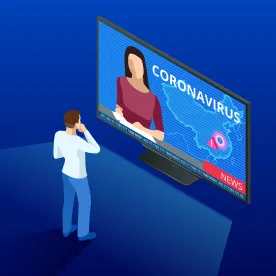Businesses regularly engage in promotional pricing and discounts as a sales strategy to attract customers. However, what happens if a business enacted a promotional price right before the pandemic struck and price gouging laws were triggered? Are those businesses stuck with those promotional prices until states of emergency come to an end and price gouging laws are turned off? Some state price gouging laws explicitly provide an exception for promotional or discount pricing. And while other states are silent on the issue, that doesn’t mean businesses are without a defense.
Some state price gouging laws specifically address promotional pricing. Mississippi’s price gouging law, for example, includes a provision providing that “[t]he prices ordinarily charged for comparable goods or services in the same market area do not include temporarily discounted goods or services.” Miss. Code Ann. § 75-24-25. Rhode Island’s price gouging law similarly addresses promotional pricing, “the average price calculation during said thirty-day (30) period shall not include discounted prices set and offered as a result of bona fide manufacturer’s or supplier’s limited discounts or rebates.” R.I. Gen. Laws § 6-13-21(b)(1). While Virginia’s price gouging law considers “the price charged by the supplier for the same or similar goods or services during the 10 days immediately prior to the time of disaster, provided that, with respect to any supplier who was offering a good or service at a reduced price immediately prior to the time of disaster, the price at which the supplier usually offers the good or service shall be used as the benchmark for these purposes.” Va. Code Ann. §59-1-527, (emphasis added).
In states that do not specifically address promotional pricing, businesses may nonetheless have available defenses. Some states prohibit price increases that are excessive or unconscionable based on the price charged the day before the emergency was declared. Under these standards, to the extent a pre-emergency price was a promotional or temporary price, it may not trigger the price increase prohibitions. If a business was running a promotional price for instance the day before the emergency of $20 – a 20% discount from its typical and customary price of $25 – documentation showing this may help justify the reasons for what might appear to be a 20% increase following the declaration of emergency.
Some states also provide that the baseline price is not based on the day before the emergency, but rather an average over a certain period of time. Pennsylvania, for example, considers the “average price . . . during the last seven days immediately prior to the declared state of emergency.” Penn P.L. 1201, No. 133 §4(b). Other states provide a more generous time period for calculating average prices such as Alabama (30 days) or Washington, D.C. (90 days). For short-term promotional discounts in place immediately preceding a state of emergency, states that consider longer periods of time in calculating average baseline prices may be more favorable.
As price gouging laws continue to remain in effect under states of emergency, additional guidance on how promotional pricing and temporary discounts factor into the analysis may arise. In the meantime, businesses should maintain well documented evidence of any promotional pricing or other discount prices in effect pre- and post-emergency declarations.







 />i
/>i
